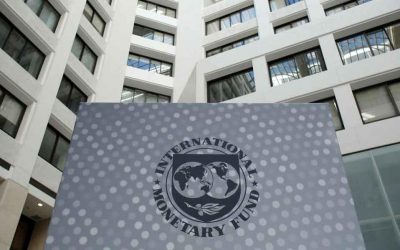Greece Under the Brunt of the IMF’s Deadly “Economic Medicine”…
IMF to Insist on ‘Unsustainable Debt’ and Say Banks Need 10B Euros

The International Monetary Fund has again found that Greece’s debt is unsustainable under every scenario, according to the report the Executive Council will be discussing on Thursday to decide on the Fund’s participation in the Greek program, sources say.
The word from Washington is that the Fund’s technocrats have included various scenarios in their debt sustainability analysis (DSA), including one that incorporates the eurozone’s commitments for short-term measures and a high primary surplus, but none see Greece’s debt becoming sustainable.
Washington sources suggest that the Executive Council will tell the eurozone that unless creditors offer more debt-relief measures, the IMF will not be able to participate in the Greek program with funds.
The IMF’s baseline scenario is identical to the one presented in February, with the debt being unsustainable after 2030, as servicing it will require more than 20 percent of gross domestic product. The IMF will also likely warn about weaknesses in the Greek credit system, claiming it will need additional funding of 10 billion euros.
An IMF source said that the chances of the fund disbursing the 1.6 billion euros Athens has requested “are limited.” However, what it seems the Fund is really waiting for is whether a government more amenable to Greek debt relief will emerge from September’s elections in Germany, something that is not at all certain right now.
As things stand, we are probably heading for the worst combination, as Finance Minister Euclid Tsakalotos said in May: that the IMF is heeded only in its demands for more austerity and not for debt relief. This is why, according to IMF sources, the report to be discussed includes no time limit for the review of the debt’s sustainability that would determine the Fund’s definitive participation in the program.
In most other cases of countries with a similar status in the past, with an agreement on “approval in principle,” a one-month period was granted for the IMF to decide whether it would activate a program or not. In Greece’s case it is obvious that the IMF has decided to remain flexible, granting a margin to the eurozone to act as it considers best for the lightening of the Greek debt. It is therefore possible that the IMF remains only as a consultant up to the end of the Greek program in August 2018.
Featured image from ekathimerini.com

